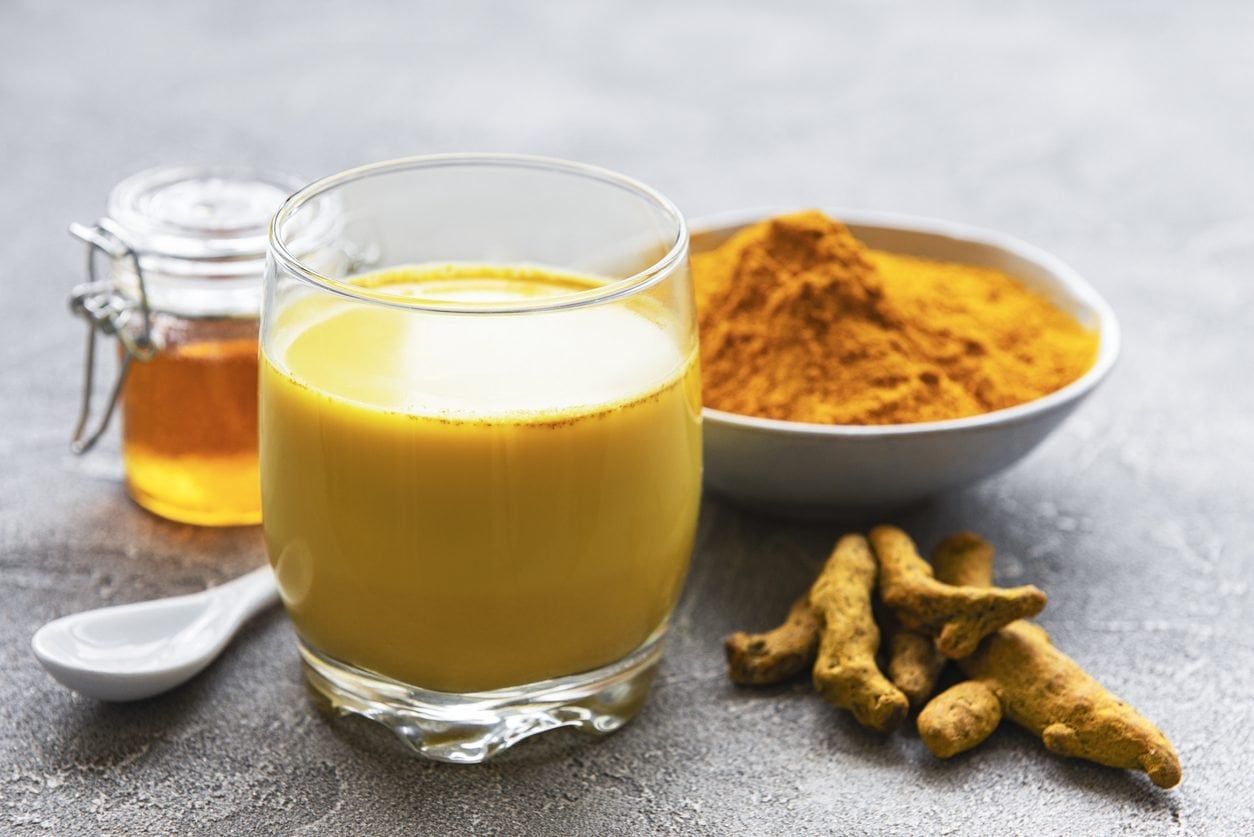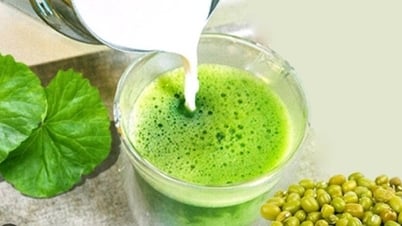1. Turmeric tea
Turmeric has been used in Ayurvedic medicine for millennia to help treat inflammatory diseases. Curcumin, the main active ingredient in turmeric, “may be a safe, effective therapy for maintaining remission in people with ulcerative colitis when used in combination with standard treatments,” according to a review published in July 2020 in Nutrients.
Most studies of curcumin as a treatment for ulcerative colitis have looked at large, concentrated doses like those found in some supplements, rather than the smaller amounts found in turmeric tea. So while turmeric tea may have a relaxing or soothing effect, there is little evidence that the amount of curcumin in tea will contribute to remission.
Try this gentle blend of turmeric combined with ginger and honey or maple syrup for a rich, flavorful tea.

Turmeric is a powerful anti-inflammatory and antioxidant spice.
2. Fennel tea
Fennel seeds are used for a number of digestive problems such as constipation, bloating and contain active compounds that can help relieve spasms and cramps.
On the other hand, adding ginger may reduce symptoms of nausea, according to a systematic review published in the American Journal of Food Science and Nutrition.
3. Red elm tea (slippery elm)
Red elm is also known as slippery elm, commonly known as Orme glissant or Slippery elm, scientifically known as Ulmus rubra, belonging to the Elm family (Ulmaceae).
According to research, the inner bark of the slippery elm tree has been ground into a powder and used for centuries in North America to treat conditions ranging from wounds and burns to digestive problems. Slippery elm contains antioxidants that may help relieve ulcerative colitis and other inflammatory bowel conditions. It also stimulates increased mucus production in the digestive tract, which may help protect against damage associated with excess acid.
While there isn't much scientific research on slippery elm, one study found that a mixture of herbs and nutrients — including slippery elm as well as curcumin and peppermint oil — helped relieve digestive symptoms like indigestion, constipation, diarrhea, and uncomfortable bloating when taken for four weeks.
Note that according to traditional medicine, slippery elm can cause miscarriage and therefore anyone who is pregnant or breastfeeding should avoid it.
4. Ginger mint green tea
Green tea has been used for traditional medicinal purposes for thousands of years. Tea contains antioxidants that help neutralize free radicals in the body and contains anti-inflammatory compounds called polyphenols, which research suggests may help treat inflammatory diseases such as ulcerative colitis.
It is worth noting that polyphenols called catechins found in green tea are also found in black and oolong tea. In fact, a cup of tea typically contains much less caffeine than a cup of coffee, but you should not drink too much. Ginger and mint can be added to help soothe an upset stomach and promote good digestion.
Before making any changes to your diet, such as drinking tea, you should talk to your doctor and do not expect that drinking a cup of green tea will cure your disease. Therefore, following the treatment, making healthy lifestyle changes and adopting a proper diet will benefit people with ulcerative colitis.
Drinking herbal teas can help ease the symptoms of ulcerative colitis and improve your overall health. Teas such as turmeric and ginger, fennel seed, slippery elm, and green tea with ginger and peppermint contain properties that can reduce inflammation, relieving indigestion. Try adding these teas to your routine and see which ones work best for a healthier gut.
Source: https://giadinh.suckhoedoisong.vn/4-loai-tra-lam-diu-duong-ruot-tot-cho-nguoi-bi-viem-loet-dai-trang-172240928112049609.htm



![[Photo] President Luong Cuong presents the 40-year Party membership badge to Chief of the Office of the President Le Khanh Hai](https://vphoto.vietnam.vn/thumb/1200x675/vietnam/resource/IMAGE/2025/5/19/a22bc55dd7bf4a2ab7e3958d32282c15)
![[Photo] General Secretary To Lam attends the conference to review 10 years of implementing Directive No. 05 of the Politburo and evaluate the results of implementing Regulation No. 09 of the Central Public Security Party Committee.](https://vphoto.vietnam.vn/thumb/1200x675/vietnam/resource/IMAGE/2025/5/19/2f44458c655a4403acd7929dbbfa5039)
![[Photo] Close-up of Tang Long Bridge, Thu Duc City after repairing rutting](https://vphoto.vietnam.vn/thumb/1200x675/vietnam/resource/IMAGE/2025/5/19/086736d9d11f43198f5bd8d78df9bd41)
![[Photo] Panorama of the Opening Ceremony of the 43rd Nhan Dan Newspaper National Table Tennis Championship](https://vphoto.vietnam.vn/thumb/1200x675/vietnam/resource/IMAGE/2025/5/19/5e22950340b941309280448198bcf1d9)





















![[Photo] Prime Minister Pham Minh Chinh inspects the progress of the National Exhibition and Fair Center project](https://vphoto.vietnam.vn/thumb/1200x675/vietnam/resource/IMAGE/2025/5/19/35189ac8807140d897ad2b7d2583fbae)






























































![[VIDEO] - Enhancing the value of Quang Nam OCOP products through trade connections](https://vphoto.vietnam.vn/thumb/402x226/vietnam/resource/IMAGE/2025/5/17/5be5b5fff1f14914986fad159097a677)





Comment (0)